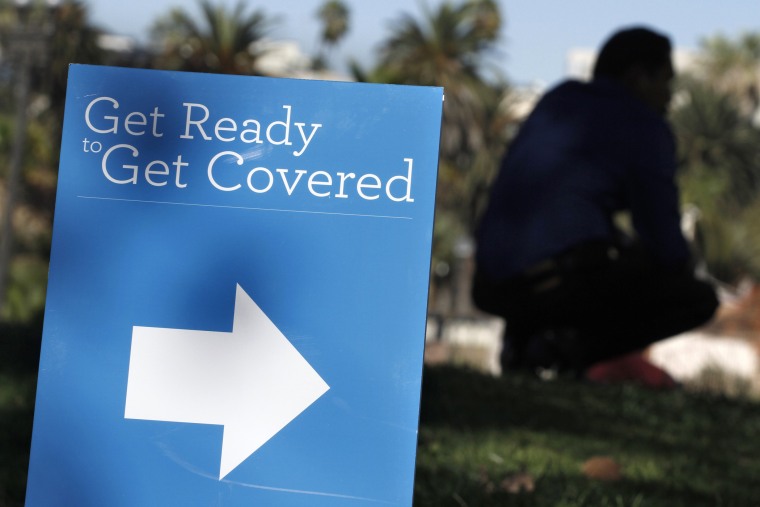Americans are no longer confronted with a debate over health care reform, per se. Whether or not reform's opponents are prepared to admit it, that debate is effectively over -- a package of reforms was approved by Congress, signed by the president, and endorsed by the Supreme Court. The system is being implemented, and by every metric, it's performing very well.
What we instead have is a group of people whose sole goal is to cripple the American system as part of a political war. Proponents of this war realize that many American families will suffer as a result of their efforts, but the right is prepared to treat these victims as collateral damage in their partisan combat.
Whether or not you find that offensive depends largely on the condition of your moral compass.
But as is always the case in any conflict, the victims aren't just numbers on a page; they're real people. And before Republicans accept these families' losses as the price of their political war, it's worth getting to know some of them personally. Take David Tedrow, for example, of Durham, North Carolina.
The Obamacare subsidies saved my life. Now, I'm scared the Supreme Court is going to gut them. In 2010, at 54, I was diagnosed with non-alcoholic cirrhosis (end-stage liver disease). It's debilitating, and a transplant is the only cure.
Tedrow published a powerful piece in the Washington Post, detailing the severity of his illness, the treatment that saved his life, and the unavoidable fact that the Affordable Care Act is directly responsible for saving his life.
Tedrow is now aware of the fact that Republicans on the Supreme Court may gut the American health care system because of the perception of a minor drafting error in the legislation's text -- and he's terrified.
"After my year-long recovery is complete, I'm hoping to go back to work," he wrote. "I've had three careers -- in higher education, in biomedical engineering sales and as a small-business owner. Because of my insurance, I'm able to contemplate my future. And I'm really frightened that the Supreme Court might cut the subsidy for me and so many others. For me, the subsidy is the difference between life and death."
Stories like these are familiar because there are many Americans whose lives have been saved by "Obamacare." It's a simple, unavoidable fact -- when we talk about the future of the law as a matter of life and death, we're not being melodramatic. We know with certainty that if Republicans gut or repeal the law, many will no longer have access to affordable medical care, and as a consequence, they may pay with their lives.
For those who hate the Affordable Care Act with a blinding, irrational disgust, this is probably a shame. It's why, maybe someday, Republicans might even get around to unveiling an ACA alternative after five years of behind-the-scenes efforts that have produced nothing to date.
But in the meantime, the conservative response to David Tedrow and people like him is, in effect, "Our political war isn't over. Good luck."
Brian Beutler noted the other day that a group of regular people whose lives were saved by the Affordable Care Act wrote an amicus brief for the 4th Circuit Court of Appeals, and it's not easy reading. These innocent Americans, whose only crime is getting sick, have faced horrible medical ordeals, and now they're left to wonder whether the Supreme Court will effectively deliver a death sentence over the legislative equivalent of a perceived typo.
The Supreme Court, Beutler added, "is now a death panel." That's true, but it doesn't have to be.
